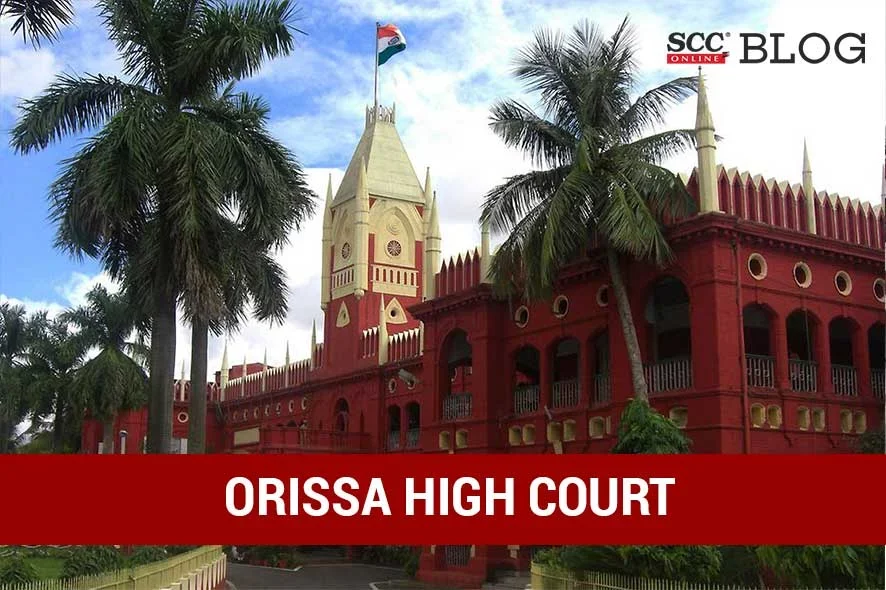Orissa High Court: In a bail application under Section 439 of the Code of Criminal Procedure, 1973 (‘CrPC’) for offences under Section 3 of the Prevention of Money Laundering Act, 2002 (‘PMLA’), S.K Panigrahi, J. allowed the application and granted bail to the accused for lack of evidence.
In the matter at hand, the informant who lodged the First Information Report (‘FIR’) stated that he was introduced to a business process, and he deposited a sum of Rs.10,000/- in M/s. Fine Indi Sales Pvt. Ltd., Kanpur (‘FIPL’) in their Multi-Level Marketing Scheme (‘MLM Scheme’) towards product booking. The informant’s case was that he also received online money receipt time to time but did not receive either the products or the product vouchers. Thereafter, the informant got information that a similar business was run in Odisha, hence he made a top up of Rs.40,000/- and around twenty people had joined the business and had given a deposit of Rs.5,00,000/-. Similarly, the accused deposited money in his account and transferred the same to the Company’s account. The Company’s system was that a person receives a sum of Rs.1000 per month if he makes a product booking of Rs.10,000 and after deduction of TDS receives a sum of Rs.897 in core banking account. It was alleged that as per the agreement of the Company, products or product vouchers were not supplied till date. Therefore, an FIR was lodged against officials of FIPL for commission of offences under Section 406/420/468/471/34 of the Penal Code, 1860 (‘IPC’) and Section 4/5/6 of Prize Chit and Money Circulations Scheme (Banning) Act, 1978.
The Court perused Section 45 of the PMLA which lays down conditions for the purpose of granting bail to an accused charged with the offence of money laundering and noted that ‘no person accused of an offence under the PMLA shall be released on bail unless: (i) the Public Prosecutor has been given an opportunity to oppose the application for such release, and (ii) where the Public Prosecutor opposes the application, the court is satisfied that there are reasonable grounds for believing: – that he is not guilty of such offence and – that he is not likely to commit any offence while on bail.’
Further, the Court noted that charge sheet was already submitted, and documents were seized, hence, there was no chance of tampering evidence and that the accused was cooperative during investigation and never misused his liberty of not being arrested during investigation. The Court also said that there is no scope of absconding if the accused person is granted bail as he is a permanent resident of his locality, having his family members and ancestral property there. The Court said considering the fact that the accused is a blind person, he is entitled to bail under Section 45 of the PMLA Act.
Referring to Vijay Agrawal v. Directorate of Enforcement, 2022 SCC OnLine Del 4130, the Court stated that it is well settled that the Court is only required to look at the prima facie case and is not required to look into the test of guilt. Further, the Court said that it is required to maintain a delicate balance between the judgment of acquittal and conviction and an order granting bail before commencement of trial. The Court said that the entire transaction of the company is on website and the mode of payment was also by Bank and none of the customers were claiming any default by the company prior to freezing of the Company’s bank account by the Bank. Therefore, the Court clarified that there is no material against the accused and that he had no role in the alleged crime and is entitled to be released on bail.
Thus, the Court released the accused person on bail with certain conditions:
-
the Petitioner shall appear before the trial Court on each date,
-
he shall not indulge in any criminal offence while on bail and,
-
he shall not tamper with the evidence of the prosecution witnesses in any manner.
The Court also directed that violation of any of the conditions shall result in cancellation of bail.
[Mahammed Naseer v. Assistant Director, Enforcement Directorate, Government of India, Kolkata, 2023 SCC OnLine Ori 6314, Decided on: 20-11-2023]








